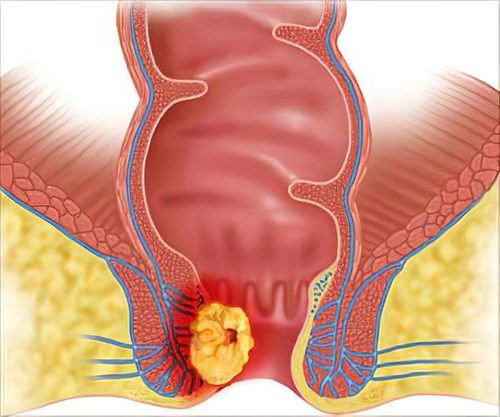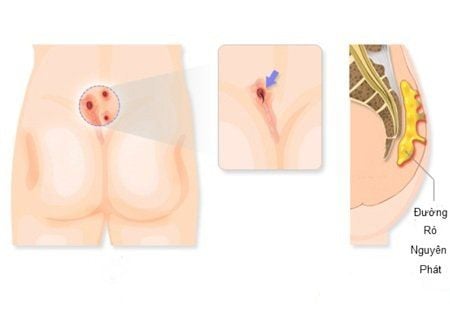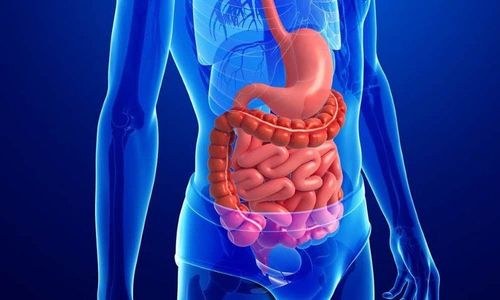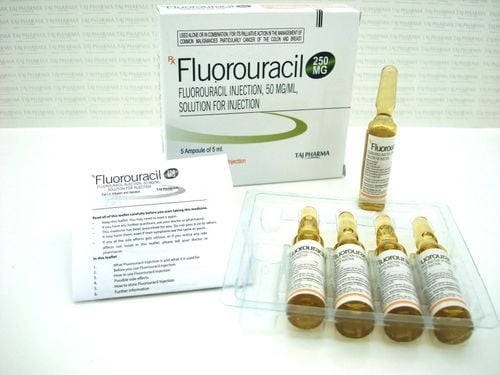This is an automatically translated article.
Anal cancer occurs in the short tube at the end of the rectum that carries stool out of the body. Anal cancer can show signs such as rectal bleeding and anal pain.
1. Current status of anal cancer
According to the American Cancer Society, an estimated 8,200 cases of anal cancer will be detected in 2017 and an estimated 1,100 deaths that year from anal cancer are expected.
However, only about half of anal cancers are diagnosed before the melanoma has spread beyond the original site and 13% to 25% are diagnosed after the cancer has spread to other areas. lymph nodes and 10% are diagnosed after the cancer has spread to more distant organs.
When detected early, anal cancer is highly treatable with a 60% survival rate for the first 5 years after anal cancer diagnosis for men and 71% for women.
2. Early warning symptoms of anal cancer
The most common symptom associated with anal cancer is bleeding.
Anal itching can also be a symptom of cancer, at first many people assume that their bleeding and itching is caused by hemorrhoids leading to a delay in the diagnosis of anal cancer.
Symptoms of anal cancer can also include:
Pain or heaviness in the anal area Unusual discharge from the anus Touching a lump near the anus Change in bowel habits

Triệu chứng phổ biến nhất liên quan đến ung thư hậu môn là chảy máu
3. Who is susceptible to anal cancer?
Several factors have been found to increase the risk of anal cancer, including:
Advanced age: Most cases of anal cancer occur in people 50 years of age or older. Multiple sex partners: People with multiple sexual partners have a higher risk of anal cancer than those who are monogamous. Anal sex: People who practice anal sex have an increased risk of anal cancer. Smoking: Smoking can increase the risk of anal cancer. History of cancer: People who have had cancer of the cervix, vulva, or vagina have an increased risk of anal cancer. Human papillomavirus (HPV): Infection with the HPV virus increases the risk of several cancers, including anal cancer and cervical cancer. HPV infection is a sexually transmitted disease that can also cause genital warts. Medicines or diseases that suppress the immune system: Patients must use drugs to suppress the immune system such as organ transplant recipients, people infected with HIV virus that causes AIDS.
4. Causes of anal cancer
Anal cancer is formed when gene mutations in normal cells turn into abnormal cells. Healthy cells will grow and multiply at a predetermined rate, eventually dying according to a predetermined schedule. Abnormal cells grow and multiply out of control and they do not die. Abnormal cells accumulate to form a mass that forms a tumor. Cancer cells that invade nearby tissues and can break away from the original tumor to spread elsewhere in the body are called metastases.
Anal cancer is closely related to the human papilloma virus (HPV) or the human papillomavirus, which is a sexually transmitted disease. Most people with anal cancer are infected with the HPV virus, and HPV is thought to be the most common cause of anal cancer.

Các tế bào ung thư xâm lấn các mô gần đó và có thể tách ra khỏi khối u ban đầu
5. Complications of anal cancer
Anal cancer rarely metastasizes to distant parts of the body. Only a small percentage of tumors are found to have spread, but these tumors are particularly difficult to treat. Anal cancer most commonly metastasizes to the liver and lungs.
6. Prevention
Currently, there is no way to completely prevent anal cancer. To reduce your risk of anal cancer you can take some steps:
Safe sex can help prevent HPV and HIV, two sexually transmitted viruses that can increase your risk anal cancer. If you choose to have anal sex, use a condom. Get vaccinated against the virus. Currently, there are several vaccines to protect against HPV infection that are recommended for adolescents, including boys and girls, but can also be given to adults. Quit smoking. Smoking increases the risk of anal cancer. Don't try smoking even once and quit if you're smoking. Anal cancer, if not treated early and properly, will lead to many ominous and adverse health complications. Therefore, patients should not be shy about hiding or receiving treatment at unreliable locations. Experienced doctors with the help of modern equipment at Vinmec International General Hospital will quickly help you get rid of the troubles caused by the disease and quickly return to your daily activities. normal life.
Please dial HOTLINE for more information or register for an appointment HERE. Download MyVinmec app to make appointments faster and to manage your bookings easily.
Article referenced source: Mayoclinic.org












